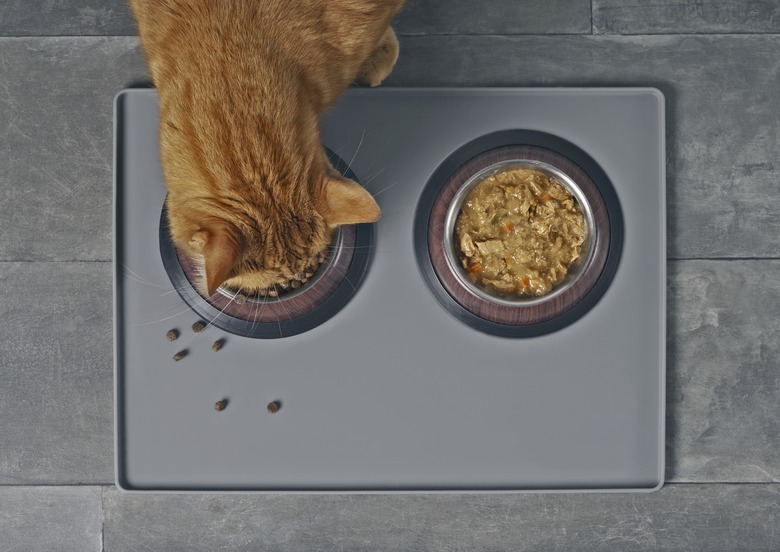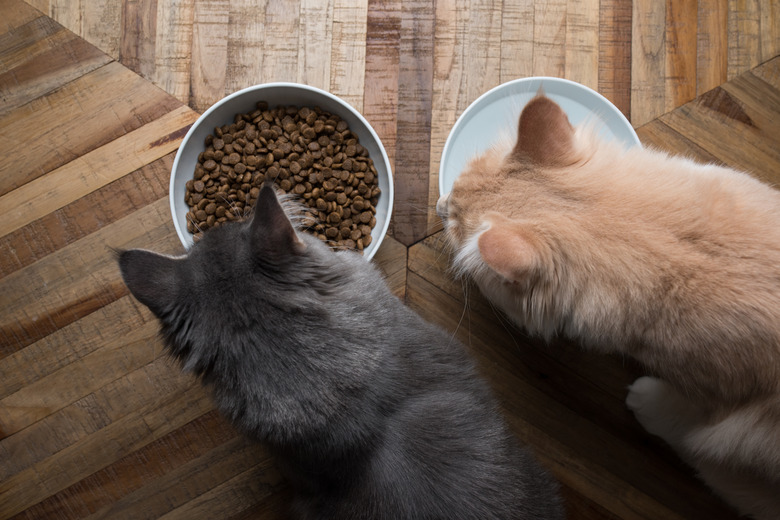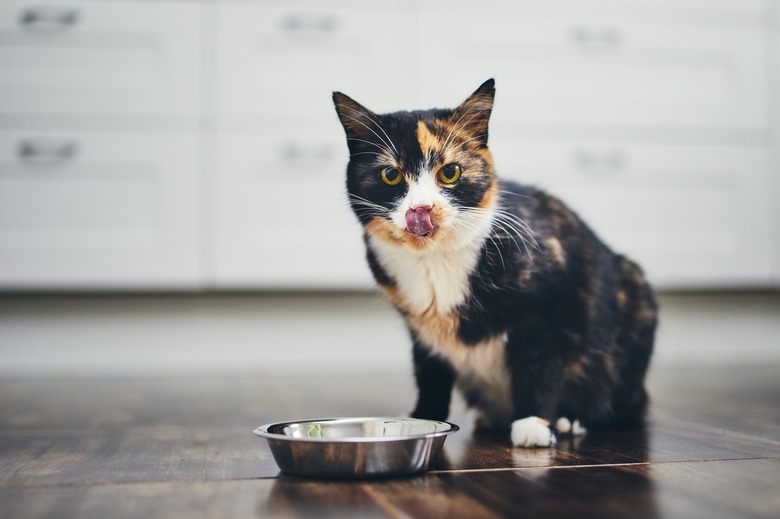Are Homemade Diets Safe For Your Cat?
If you share your heart and home with a cat, you already know that what you feed your cat plays a major role in her quality of life and longevity — a good diet promotes optimal digestion, strong joints and bones, healthy skin, and a glossy coat. You can safely feed a homemade diet if you are willing to put in the time to prepare the food and work with your veterinarian to ensure your cat is getting all the nutrients they need.
Considering that food and a balanced diet are the foundation of your cat's health, you may have some misgivings about feeding a mass-produced, commercially-formulated diet. After all, with so many pet food recalls in the past several years, it's impossible to know exactly what lurks in that can of turkey and giblet paté or bag of kibble. It all boils down to your cat's health.
It's not surprising then, that an increasing number of pet parents are switching from commercial diets to homemade diets for their cats and dogs. But if you're considering a homemade diet for your cat, you may be frustrated and confused by conflicting information from a variety of sources. And with all the buzz in the media, you may even be wondering if homemade diets are, in fact, safe for your cat.
Homemade cat food safety considerations
Homemade cat food safety considerations
Homemade diets are safe for cats, but you must consult your vet first, and be sure that you are meeting your cat's nutritional requirements. Cats have specific nutritional needs, which we'll delve into below, and it's important to make sure you're aware of them before embarking on a homemade diet for your cat.
Once you know which foods and nutrients your cat needs to meet his daily nutritional requirements, you develop a species-appropriate homemade diet that is safe and healthy for your cat. Many homemade diets are simple to prepare, economical, and delicious.
Cats are obligate carnivores
Cats are obligate carnivores
Cats are obligate carnivores, also called "true carnivores," and must eat animal tissue and organs to fulfill their species-specific nutritional profile if they are to thrive. And for most of our shared evolutionary history, which spans thousands of years, humans have prepared species-specific food for their cats. If you decide to feed your cat a homemade diet, keep in mind that your cat must eat meat in order to survive.
Protein-rich meat, poultry, or fish forms the basis of your cat's species-specific diet, supplemented with an assortment of essential nutrients delivered by vegetables, amino acids (the building blocks of protein) such as taurine and others, as well as vitamins and minerals.
Homemade cat diet ingredients
Homemade cat diet ingredients
It's important when feeding a homemade diet to cats to rotate proteins and vegetables to offer a full spectrum of nutrients. For example, alternate between two or three favorite proteins, such as chicken, turkey, or beef. When it comes to veggies, alternate your kale, zucchini, broccoli, and spinach to change up the regime and keep it healthy and suitably diversified.
Raw food vs. cooked food
Raw food vs. cooked food
If you're considering feeding your cat homemade food, you may also be wondering about raw diets for cats. Bacterial contamination is often a major concern for pet parents as they ponder feeding a species-appropriate raw diet to their cat. With a short and acidic digestive system, cats are better at digesting raw foods than humans are.
However, many leading organizations, including the American Veterinary Medical Association and the Centers for Disease Control and Prevention, have issued statements opposing the feeding of raw food to dogs and cats. It's best to talk to your veterinarian to ask them their opinion on raw food diets for cats.
Can cats be vegetarian?
Can cats be
vegetarian?
The "vegetarian pet" debate is a contentious one among veterinarians and pet parents, particularly for those who follow a vegan or vegetarian diet themselves. Your choice to eat a vegetarian or vegan diet is strictly your own, but what about those pets in your care?
Veterinarians caution against plant-based diets for cats. Cats need certain nutrients and amino acids from meat including arachidonic acid, taurine, and vitamins A and B12. Deficiencies in these nutrients can lead to serious health problems including hearing loss and heart and liver problems. Unlike some other species, cats cannot make these nutrients from plant-based foods. For example, while humans have the enzymes necessary to create vitamin A from carotene, cats do not have the same ability.
In addition to taurine, plant-based food also cannot provide arachidonic acid, vitamin A, and vitamin B12, all-important components for optimum health. As mentioned above, cats are obligate carnivores and require meat in their diets in order to thrive.
References
Consult your vet
You can safely feed your cat a homemade diet, but make sure that you consult with your vet first and that you are able to meet your cat's nutritional needs. Your cat is an obligate carnivore and therefore requires meat in her diet. Do not try to feed your cat a vegetarian or vegan diet. Always consult with your vet before making any major changes to your cat's diet.
Always check with your veterinarian before changing your pet's diet, medication, or physical activity routines. This information is not a substitute for a vet's opinion.


